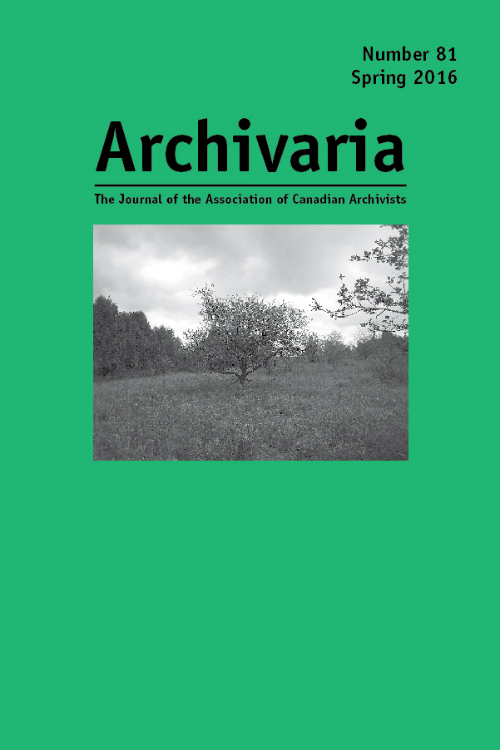An Accidental Archive of the Old Durham Road: Reclaiming a Black Pioneer Settlement
Abstract
This article considers how the land might be utilized as an archive of a “disappeared” historic community of black settlers in Grey County, Ontario. The paucity of resources about this community (beyond the censuses that marked race as a category), as well as past and current efforts to deny its existence, are considered. Drawing on Jonathan Silin’s notion of teacher as “accidental archivist,”[1] the article explores how the land along the Old Durham Road, where these settlers lived, might be considered an “accidental archive.” Three “evidences” of the settlement are taken up: wild apple trees, a stone foundation, and crockery shards from a kitchen midden. Through seasonal changes, the land both hides and reveals, suggesting both the literal and the metaphoric “absent presence” of this historic community. In closing, the article explores how this archive might best be accessed.
RÉSUMÉ
Cet article se penche sur la manière dont des terres pourraient servir d’archives à une communauté historique « disparue » de colons noirs du comté de Grey, en Ontario. L’article considère la pénurie de ressources au sujet de cette communauté (au-delà des recensements qui notaient la race comme catégorie), ainsi que les efforts passés et présents pour nier son existence. En s’inspirant de la pensée de Jonathan Silin au sujet de l’enseignant comme « archiviste accidentel »,1 cet article explore comment les terres le long du chemin Old Durham, où ces colons ont vécu, pourraient être considérées comme des « archives accidentelles ».[1] Trois « preuves » de l’établissement sont examinées : des pommiers sauvages, une fondation de pierre et des tessons de faïence provenant d’un tas d’ordures de cuisine. Avec le changement des saisons, les terres cachent et révèlent, suggérant à la fois la « présence absente » littérale et métaphorique de cette communauté historique. En terminant, cet article examine la meilleure façon d’avoir accès à ces archives.
[1] Jonathan Silin, “The Teacher as Accidental Archivist,” Studies in Gender and Sexuality 15, no. 2 (April 2014): 133–42.
Authors of manuscripts accepted for publication retain copyright in their work. They are required to sign the Agreement on Authors' Rights and Responsibilities that permits Archivaria to publish and disseminate the work in print and electronically. In the same agreement, authors are required to confirm that "the material submitted for publication in Archivaria, both in its paper and electronic versions, including reproductions of other works (e.g. photographs, maps, etc.) does not infringe upon any existing copyright." Authors of manuscripts accepted for publication retain copyright in their work and are able to publish their articles in institutional repositories or elsewhere as long as the piece is posted after its original appearance on archivaria.ca. Any reproduction within one year following the date of this agreement requires the permission of the General Editor.





